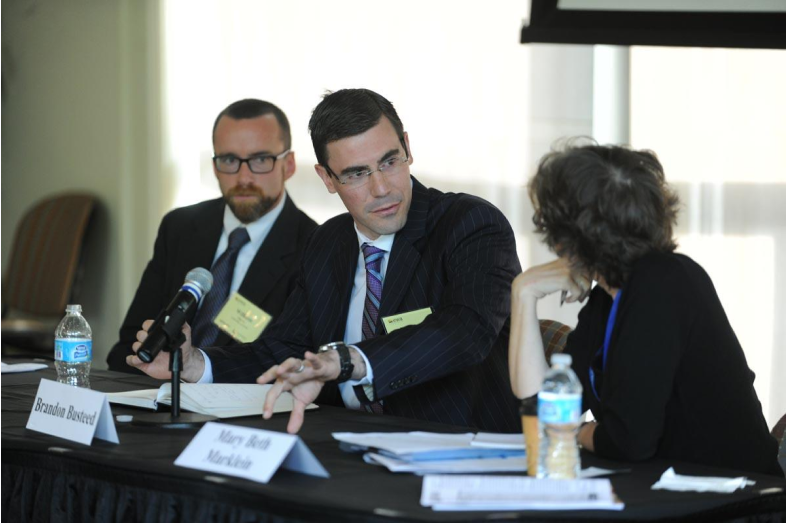

It’s well known that obtaining a college degree can give graduates a leg up financially over their lifetime, but it turns out that a person’s overall well-being after commencement has little to do with the type of institution attended.
The Great Jobs and Great Lives Gallup-Purdue Index, released in May, seeks to measure how college affects a graduate’s workplace engagement, as well as several aspects of that person’s life – such as a feeling of purpose, a sense of community, financial stability, social support, and physical health. After surveying more than 29,000 adults who had obtained at least a bachelor’s degree, the researchers found more than 1 in 6 graduates were not thriving in any measure and that a person’s chances of a fulfilling life after college had more to do with the support and experiences the college offered than the overall caliber or type of institution.
Brandon Busteed, executive director of Gallup Education, discussed the findings with William Doyle, an associate professor of public policy and higher education at Vanderbilt University, during a session at EWA’s National Seminar in Nashville in May.
“The last several years at least we’ve had this growing conversation about the return on investment for education in general, but specifically a college degree,” Busteed said. “That has come at the same time that rising costs have hit a point where people are starting to question for the first time in American history whether a college degree is worth it.”
Overall, the index indicated there was no significant difference in a person’s workplace engagement or well-being when looking at the type of institution the person attended — public or private; highly selective or not; the top 100-ranked schools in U.S. News versus the rest. Meanwhile, graduates of smaller schools were slightly less likely to be engaged at work than those from schools with enrollments over 10,000, and graduates of for-profit colleges were less likely to be engaged at work and thriving in the well-being measures.
On the other hand, certain factors, such as student loan debt, appeared to have a negative effect on several measures of well-being. One would expect a large amount of debt to affect a person’s financial well-being, but Busteed said higher debt also affected every other measure, even physical well-being, for example.
Factors that college could offer that did improve their graduates’ welfare included things like being emotionally support — having professors who cared about them or having a mentor – as well as having “experiential and deep learning” that could take place in the form of a long-term project, an internship or a job. Such factors could double or triple a graduate’s workplace engagement and well-being.
Still, just 14 percent of graduates met all three measures of emotional support, 6 percent met all three measures of deep learning, and only 3 percent hit what Busteed called the “life and career trajectory jackpot” of all six measures.
Busteed said the findings show college can indeed have a significant impact on a person’s future, but that there is still much room for improvement. “In many ways it kind of confirms both our greatest hopes about higher education, and our worst fears at the same time,” Busteed said.
Doyle said perhaps the reason so few students meet the measures of emotional support, particularly from professors, is because most faculty “don’t view this as core to what they do.” Rather, most faculty focus on the delivery and assessment of content, Doyle said.
“What has to happen if you do want this to change … is that you change the incentives for faculty,” Doyle said. “The reason that these aren’t things faculty are seeing as core to what they do is because there’s no incentive to do so.”